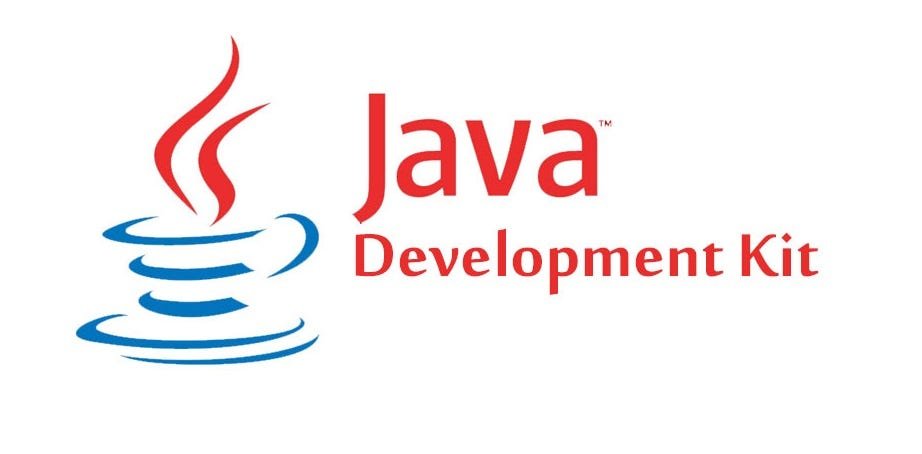What Are JDK And JRE?
Category: JAVA | 5th January 2025, Sunday

JDK (Java Development Kit) And JRE (Java Runtime Environment) Are Integral Components Of Java's Ecosystem, Each Serving A Specific Purpose In The Software Development And Execution Process. While Both JDK And JRE Are Essential For Java Development And Runtime, They Cater To Different Stages Of A Java Application’s Lifecycle.
Understanding JDK (Java Development Kit)
The JDK Is A Comprehensive Toolkit Required For Developing Java Applications. It Is Designed For Developers Who Write And Compile Java Programs. The JDK Provides The Tools And Resources Necessary To Create, Debug, And Run Java Applications During Development.
The JDK Includes:
- Compiler (javac): Converts Java Source Code Into Bytecode, A Platform-independent Code Executed By The Java Virtual Machine (JVM).
- Java Runtime Environment (JRE): The Runtime Environment Included Within The JDK Ensures Developers Can Test And Run Their Applications.
- Debugger (jdb): Helps Identify And Fix Issues In Java Applications.
- Other Tools And Libraries: Includes Utilities Like
javadocFor Generating Documentation, And Development Libraries For Writing Robust Java Programs.
The JDK Is Essential For Developers Because It Empowers Them To Write Java Applications From Scratch. It Supports The Entire Development Process, From Coding And Compiling To Testing And Debugging. Without The JDK, Creating Java Programs Would Be Impossible, As It Provides The Necessary Tools To Interact With The Java Ecosystem.
Understanding JRE (Java Runtime Environment)
The JRE Is A Subset Of The JDK And Is Designed For Users Who Want To Run Java Applications But Not Develop Them. It Provides The Runtime Environment Necessary For Executing Java Programs. Essentially, The JRE Ensures That Java Applications Can Run On Any System Equipped With It.
The JRE Includes:
- Java Virtual Machine (JVM): The JVM Interprets And Executes Bytecode, Enabling Java Applications To Run On Various Platforms.
- Libraries And Classes: Contains Pre-built Classes And APIs Needed To Run Java Applications.
- Supporting Files: Includes Configuration Files And Tools Required For Seamless Execution.
The JRE Does Not Include Development Tools Like The Compiler, As It Is Intended Solely For Running Java Programs. For End-users Who Want To Execute Java-based Applications Or Applets, Installing The JRE Is Sufficient.
Relationship Between JDK And JRE
To Understand The Relationship Between JDK And JRE, Think Of The JDK As A Superset Of The JRE. Every JDK Contains A JRE, But Not Every JRE Contains A JDK.
- Development Stage: When Developers Create Java Applications, They Use The JDK. It Provides The Necessary Tools For Writing, Compiling, And Debugging Java Code.
- Execution Stage: Once The Application Is Developed And Compiled, It Can Run In The JRE, Which Provides The Runtime Environment.
For Example, If You Are Developing An Android App Or A Java-based Web Application, You Need The JDK To Write And Compile The Code. However, End-users Only Need The JRE To Run The Final Application.
Features And Use Cases Of JDK And JRE
JDK Features
- Compiler: Converts Source Code Into Bytecode For The JVM.
- Development Tools: Includes Debugging And Documentation Utilities.
- Rich Libraries: Provides Extensive Libraries For Building Various Types Of Java Applications.
JRE Features
- JVM Support: Allows Java Applications To Run Across Different Operating Systems.
- Built-in Libraries: Offers Essential APIs And Classes For Running Java Programs.
- User-friendly: Simplifies Application Execution Without Requiring Development Tools.
Use Cases Of JDK
- Writing Java Programs.
- Compiling And Debugging Code.
- Developing Complex Java Applications.
Use Cases Of JRE
- Running Java Applications On A Local Machine.
- Hosting Java-based Applications On Servers.
- Providing Runtime For Java Applets In Web Browsers (historically).
Why Are JDK And JRE Important?
The Significance Of JDK And JRE Lies In Their Respective Roles In The Java Ecosystem. Together, JDK And JRE Form The Backbone Of Java Development And Execution.
- For Developers: The JDK Is Indispensable, Providing All The Tools Needed To Build Java Programs. Without The JDK, Developers Cannot Translate Their Ideas Into Executable Java Applications.
- For End-Users: The JRE Allows Users To Run Java Programs Effortlessly, Ensuring Cross-platform Compatibility And Seamless Execution.
Differences Between JDK And JRE
| Feature | JDK | JRE |
|---|---|---|
| Purpose | Development Of Java Applications. | Running Java Applications. |
| Components | Includes JRE, Compiler, Debugger, Etc. | Includes JVM, Libraries, And APIs. |
| Target Audience | Developers. | End-users Or Application Executors. |
| Tools Provided | Comprehensive Development Tools. | Only Runtime Support. |
Conclusion
JDK (Java Development Kit) And JRE (Java Runtime Environment) Are Integral Components Of The Java Ecosystem, Serving Different But Complementary Purposes. The JDK Is Tailored For Developers Who Need Tools To Create, Compile, And Debug Java Applications, While The JRE Is Aimed At End-users Who Need A Runtime Environment To Execute Java Programs.
Together, JDK And JRE Embody Java's "write Once, Run Anywhere" Philosophy, Enabling Developers To Create Platform-independent Applications And End-users To Run Them Seamlessly. Whether You’re A Programmer Building Complex Systems With The JDK Or An End-user Running Java-based Applications With The JRE, Both Components Ensure The Versatility And Reliability Of Java.
By Understanding The Roles Of JDK And JRE, Developers And Users Alike Can Harness The Full Power Of The Java Ecosystem, Ensuring Smooth Development And Execution Processes.
Tags:
What Are JDK And JRE?, What Is JDK, What Is JRE
